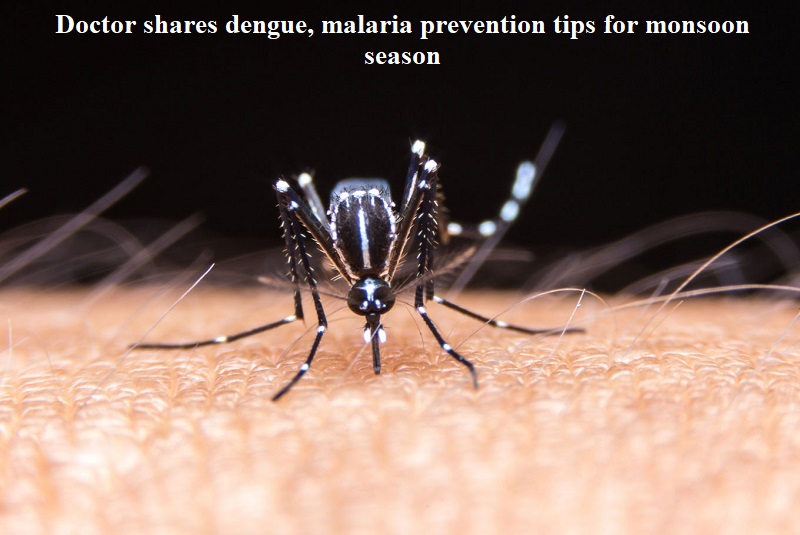
As the monsoon season approaches, the risk of mosquito-borne diseases like dengue and malaria significantly increases. It is crucial to encourage individuals and communities to proactively take steps to prevent the spread of these illnesses and protect their health. By implementing simple yet effective precautions, we can collectively combat the rising incidence of mosquito-borne diseases during this time of the year.
Both dengue and malaria are transmitted through the bite of infected mosquitoes and pose severe health risks. Dengue symptoms include high fever, severe headache, joint and muscle pain, rash, and, in severe cases, dengue hemorrhagic fever and shock syndrome, which can cause bleeding and unconsciousness. Malaria symptoms include high-grade fever with chills and rigors, sweats, headaches, nausea, and bodyaches, and it can also lead to severe complications and death.
To minimize the risk of dengue and malaria, the following precautions are recommended:
Eliminate Mosquito Breeding Sites: Get rid of standing water around your home as mosquitoes breed in stagnant water. Regularly clean and empty flowerpots, vases, birdbaths, coolers, and other objects that can collect water.
Use Mosquito Repellents: Apply mosquito repellents containing DEET, picaridin, or oil of lemon eucalyptus to exposed skin and clothing. Use bed nets while sleeping to protect yourself from mosquito bites.
Wear Protective Clothing: When spending time outdoors, especially during dawn and dusk when mosquitoes are most active, wear long-sleeved shirts, long pants, socks, and shoes to cover your arms and legs.
Keep Doors and Windows Screened: Install screens on doors and windows to prevent mosquitoes from entering your home. Repair any damages or openings in existing screens.
Promote Good Hygiene: Maintain cleanliness in and around your home. Dispose of garbage properly in covered bins to prevent the accumulation of waste that attracts mosquitoes.
Collaborate with Communities: Raise awareness about dengue and malaria prevention within your community. Encourage your neighbors to take similar precautions to minimize the risk of mosquito-borne diseases.
Seek Medical Attention: If you experience symptoms associated with dengue or malaria, such as a high fever, seek immediate medical attention. Early diagnosis and treatment are essential for managing these diseases.
During the monsoon season, increased rainfall creates breeding grounds for mosquitoes in water accumulation areas. Stagnant water in containers, discarded tires, and open drains become breeding sites for mosquito larvae. With the impact of climate change on our planet, the incidence of mosquito-borne diseases is expected to rise. Taking preventive measures and adopting responsible practices can help us reduce the spread of dengue and malaria, safeguarding the well-being of our communities.

Post Your Comments